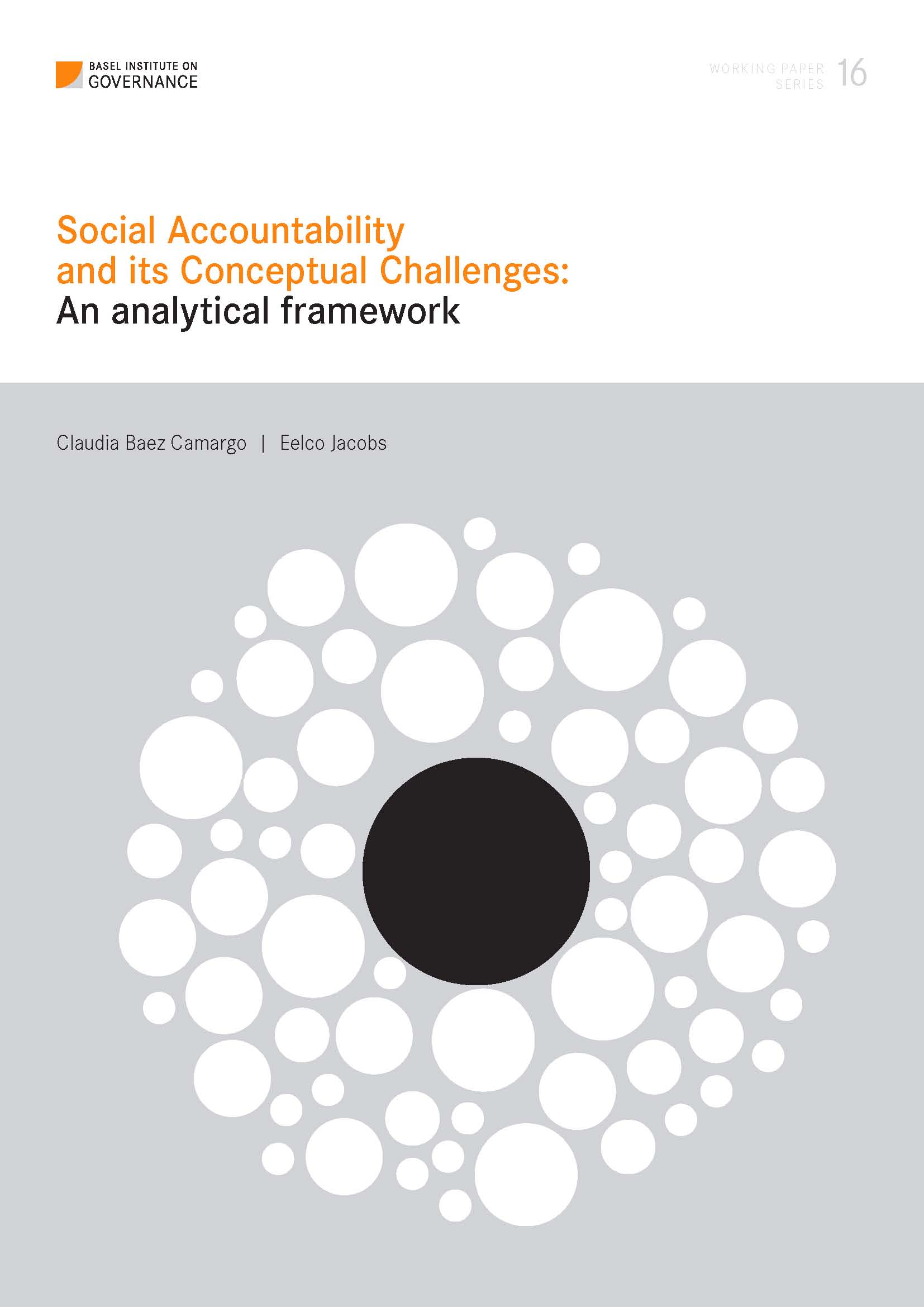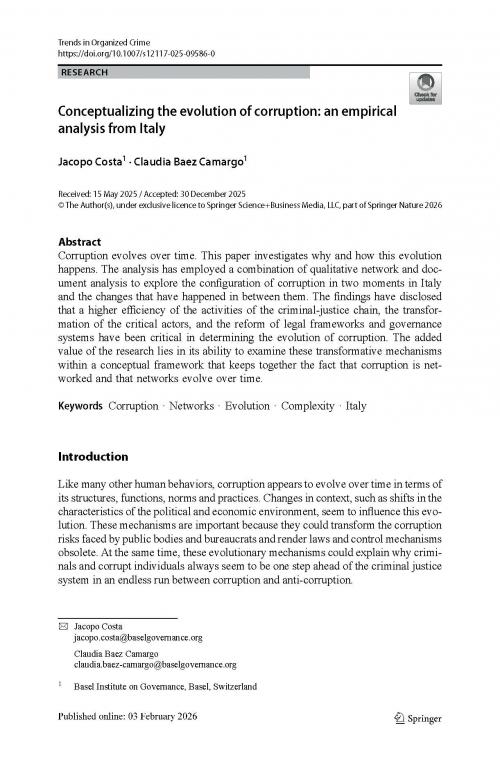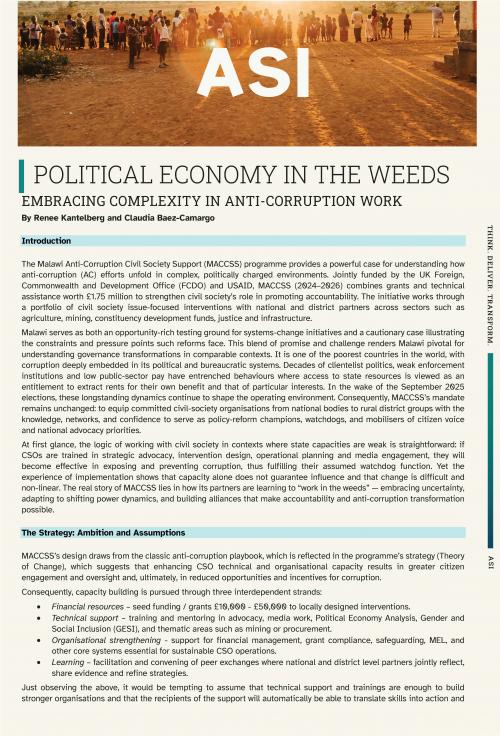Working Paper 16: Social accountability and its conceptual challenges
Social accountability has become a favoured approach among most major multilateral and bilateral donors to develop grass roots mechanisms for democratic governance. In a successful scenario, citizen participation can promote more responsive governments and better provision of basic services by linking users’ feedback to the policy design, implementation and monitoring activities typically undertaken by the state.
However, there is a lack of agreement about which specific types of social accountability interventions yield the best results and what are the causal pathways that are critical to generate positive changes. This paper presents an analytical framework that identifies the key components that are required to exercise effective direct accountability and provides a blueprint to assess social accountability initiatives.
About this Working Paper
This paper appeared in eucrim, the European Criminal Law Associations’ Forum, 2013/2, published by Max Planck Society for the Advancement of Science, c/o Max Planck Institute for Foreign and International Criminal Law, Freiburg i. B., Germany.
This paper is part of the Basel Institute on Governance Working Paper Series, ISSN: 2624-9650.
Links and other languages




